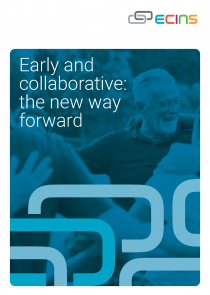Setting a challenging yet achievable goal can improve performance by 90%. Having goals to work towards can be the key to success, encouraging individuals to do their very best and aim high.
Schools play a vital role in shaping children into successful people. Staff members must support students so that they can reach their maximum potential in life.
Educators teach more than academic content. They help young people develop skills that will carry them into the world to thrive in society. Whilst it is essential to complete school with good grades, it is more critical to complete school with the necessary tools to go on and succeed in life.
Student goals can drive success and help children achieve great things.
The Role of Goal Setting
Using student goals to drive success is a great way of shaping young people’s grades and personalities.
Copious research on goal setting reveals several benefits that staff can apply to students. Goal setting improves:
- Motivation
- Performance
- Direction/ incentive
- Understanding of expectations
- Discipline
- Productivity
That goal setting inspires people to strive towards improving themselves and achieving targets, but it also does more. The act of goal setting nourishes children’s aspirations and helps them understand how to reach their targets, making goals more attainable.
Goal setting improves academic performance. However, it also builds transferable skills that aid children in general life by shaping them into determined and successful human beings.
One study found that 80% of participants felt empowered when they had set goals. Teaching children to have aspirations and self-belief is invaluable because it allows them to have confidence in their abilities and reach their potential.
Setting goals is the key to success academically and in life.
A Framework for Social Workers
Student goal setting can be a powerful tool in furthering student progress. The value of this exercise can be utilized by social workers, helping them reach and surpass student targets.
According to one study, people are 65% more likely to reach a goal if they have an accountability partner.
Social workers can assume the role of accountability partners, conducting check-ins and asking students how they have worked towards targets.
Social workers can set goals or encourage their students to independently decide what they want to achieve. Goals could be academically orientated, e.g., achieve over 50% on next week’s maths test. They can also relate to topics like attendance or behavior.
Self-help can also be promoted through goal setting. Wellness activities can be encouraged and set as targets. For example, a social worker may establish a goal of journaling for 10 minutes daily.
Social workers can utilize the benefits of goal setting. They can work collaboratively with students to drive academic and personal student success.
How ECINS Can Help
ECINS provides wraparound support for students, school staff, and social workers, ensuring that processes run smoothly. The system’s function supports those who use student goals to drive success.
The Student Engagement Module (SEM) targets student well-being and success, allowing young people to participate actively in their education. SEM is available as an app or on web browsers, so students can always have it at their fingertips.
Information logged on the SEM is protected by MyPortal360, guaranteeing complete security. Trusted staff members can access students’ responses and interactions in real-time, and social workers can see entries and take necessary action.
The SEM supports students and professionals with its various features:
- Task-setting
- Calendar
- Mood tracker
- Help + advice documents
- Attendance tracker
- Chat function
Each tool works to provide wraparound support, but certain features directly facilitate driving success through student goals.

Task/goal-setting function
ECINS’ task setter allows teachers or social workers to assign pre-set tasks to students. Staff can send general tasks to entire cohorts or individualize them. For example, a teacher might remind a class to do their homework, while adding optional homework for students who request it.
The task-setting function also serves as a goal-setting tool. Social workers use it to implement session outcomes. If a meeting with a student identifies the need to practice self-care, staff upload tasks like ‘journal for 10 minutes tonight’ and ‘practice your affirmations’ to the SEM. Personalizing tasks in this way helps staff provide tailored support to students.
Moreover, if a teacher checks in with a student who consistently gets the same grade in a class, a goal can be agreed upon and set on the SEM for the student to aspire towards. Goals can take various forms, e.g., ‘score 5% higher in your next assessment’ or ‘raise your hand once next lesson.’ The empowering impact of goal setting could have a transformative effect on student success.
This feature transforms a social worker’s role by encouraging students to engage and achieve.
Mood tracking function
The mood tracking function can be used to journal the current emotions and concerns in the SEM. Expressive writing reduces stress and allows students to gain perspective, which can work in combination with the task-setting feature.
Revealing thoughts and feelings can help students identify their strengths and weaknesses and what they need to improve. Understanding what they need to do drives students to achieve goals faster.
Social workers using student goals to drive success could access a young person’s mood journal on the SEM and identify how they feel about tasks they have been set. Students may find details easier to disclose virtually than in-person meetings with a social worker.
Understanding a student’s situation lets professionals address problems and remove barriers to success.
Help and advice documents
Staff upload resources to SEM for students to access and receive guidance.
From the social work perspective, professionals upload documents related to discussions with students, giving young people a written reminder of how to address specific problems.
Moreover, goals set on the task-setting function may feel subjective. If a student needs more clarity on, for example, what an affirmation is or ways to practice self-care, documents could inform and educate them. Help and advice documents can aid goal completion.
Sources
[MH1]https://persuasion-nation.com/goal-setting-statistics/
[MH2]https://giodella.com/goal-setting-statistics/
[MH3]https://books.google.co.uk/books?hl=en&lr=&id=mHTEkvyjaLwC&oi=fnd&pg=PR1&dq=astd+study+on+accountability&ots=Tl_zG176Yi&sig=qGr1ndwsihxE_Pd2ko0WhPtsuJk&redir_esc=y#v=onepage&q=astd%20study%20on%20accountability&f=false





